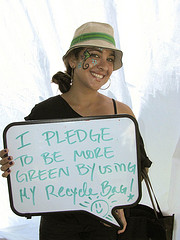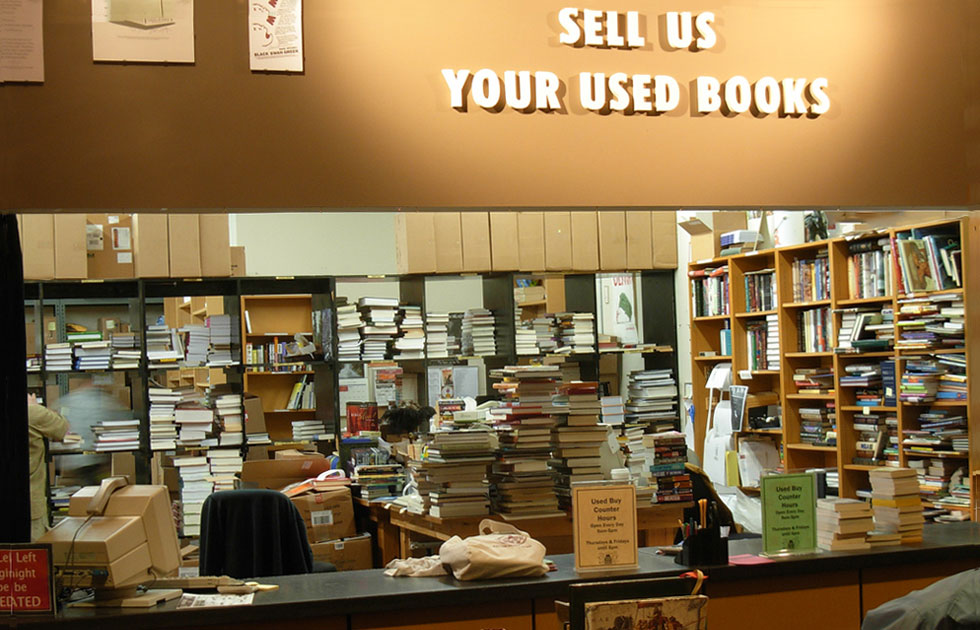In my last post, I touched on making change starting with the small things in our daily lives we can control as we turn a corner into the New Year. I am a firm believer that if each person on this planet does one small thing, collectively there will be a big impact. We’ve all seen it; many people start off their New Year’s resolution with high hopes in losing weight or quitting smoking only to give up and return to their old habits in just a couple of months. This trend is visually apparent when mobs of people show up at the gym in January and February, only to die back down to normal by March. Why is this? For some (maybe even most) people in our culture, there is an all-or-nothing mentality. They assume if they aren’t able to make it to the gym at least 5 days per week then they are not going to be successful at their weight loss goals and reap the benefits of living ahealthy lifestyle, so why even bother. But I can recall hearing a report on the news about how maintaining a healthy lifestyle doesn’t have to be an all-or-nothing approach. While exercising for 30 minutes 3 days per week may not give you the same results as going full speed ahead on an intense workout regime, it is still better from doing nothing at all. Your muscles will be stronger and your body will still benefit compared to not exercising at all. Do what makes sense for you, and not your personal trainer. Make your goals realistic, and when you don’t quite meet them, try to do the next best option.

I think the same is true with many aspects of life, including making positive changes environmentally. Most of us do not directly have the means to change industrial practices or policies on a large scale, or buy a home that runs strictly on renewable resources. Should we therefore throw in the towel and live a wasteful life of excess? I think not. So what can we do? Where do we start? Try the moderate approach. I offer some of my favorite EASY tips that have come in handy for this busy working mom and I know I am no different than many of you out there who are juggling many more things than I. Parents may find these particularly useful, but they can really translate to anyone. I love that doing these things often has added health and economic benefits too to help you reach your other New Year’s resolutions!
1.) Reuse stuff. I must confess to you, after a very brief trial period I gave up on cloth diapers for my child. But there are still so many ways to reuse materials, that are much less messy.
- Yep, we all know about the 3 R’s, so before you throw that bottle in the recycle bin perhaps it can make a fun bath toy for your tot. That scrap paper can also be incredibly useful as a canvas for your child’s artistic endeavors or for your grocery list. I often use plastic containers from items I purchase (like coffee) to store toys or crayons, cosmetics, or other household items.
- Swap Clothes. We all need to wear them, and any parent will tell you that it sometimes seems kidsoutgrow their clothes before they’ve even had a chance to wear them. I’ve never been one to turn down hand-me-downs from friends and family.
- Opt for used books. Like clothes, you can swap these with friends. But there are also many places that sell used books at a reduced price. Many of my child’s favorites are the same ones I used to enjoy!
- Reusable mugs, water bottles, and shopping bags for me have become a no-brainer. If you haven’t already, give it a try and keep in mind that there will be an adjustment period to break old habits.
2.) Make green choices at the grocery store, sometimes. Since there is often an added cost to buying organic, fair-trade, or other eco-friendly groceries, it might not always be in the budget make these choices on everything in your cart. But when it makes sense, do buy the organic peaches or the planet-friendly bathroom cleaner. A great example is to purchase organic produce from the dirty dozen list. And for those things that are worth it to you, do pay the extra cents
3.) Turn off the lights! This is my favorite one on saving energy. So basic, but still surprises me how often it gets overlooked. At home you may not be going for an efficient furnace or LED lighting yet, but you can still turn off the lights you’re not using. Bring this habit to work too and don’t forget to turn off the lights on in the conference room or bathroom when no one is in there.
4.) Plan your drive to maximize your gas mileage (and time). While I completely encourage others to give up their car and use alternate transportation methods, I must admit this is not a sacrifice I am willing to make at this point in my life when I have to take my child to day care or may need to leave work to take my child to the doctor’s at any given time without notice. But when driving in general, I do plan accordingly to make the most out of my trips. Stop at the store that is on route from work, or combine errands into a general area if possible. It also really pays to drive a fuel efficicent vehicle.
5.) Take the Stairs. This one may be more challenging for some than others depending on physical ability and the situation at hand. It’s a lot easier for me to make this choice when I only have one flight to go up to get to my office, compared to having to go to the 8th floor in the Medical Center. But, do it when you can.
6.) Make Cuts in Chemicals. It’s easy to use vinegar, baking soda, lemon, and other natural items we already have in stock as cleaning solutions. Better for your family and the environment.
Ready to make the commitment? Check out the Go Green Pledge, that was based on this principle of doing small every day things to save energy and natural resources while at the University of Rochester.
I’d really love to hear other ideas of what you do too!
By Amy Kadrie
photo by brewbooks, http://www.flickr.com/photos/brewbooks/2062647044/



Very nice article contains very useful tips
Thank you
nice share
I like to use lemon to clean clothes
Terima kasih,artikelnya sangat bermanfaat sekali..salam kenal saya dari indonesia 🙂
good post, i can get some informtion from it.
I am from Indonesia … thanks for all the information you give … may be useful for us .. may be useful for all …. and be very meaningful lesson .. thank you very much
Well said, straight to the point. Thanks a bunch.
Good post. I absolutely love this website. Stick with it!
Aw, this was an extremely nice post. Taking the time and actual effort to produce a really good article
Both sides can be argued til the cows come home. Are we aiming at leaving zero footprint? Would be nice but probably not going to happen. What we can do is weigh the impact between several choices and take the one that leaves less of a footprint.
We decided last year to switch to a virtual office for our cleaning business. Now our housekeepers don’t get paper work orders, they get emails. Our clients get electronic invoices and reciepts. Our housekeepers don’t have to drive to the office every day, they carpool and go straight to the homes they need to clean. We took a hard look at our routes and optimized them, grouping clients in the same neighborhood and making fewer trips. We set up a system for supplies that makes it so where my housekeepers only have to come to the supply warehouse (our former office) once a month, if that!
Is it perfect? No. We still use energy to power our computers and cel phones. We still have cars on the road. But is there a savings in our negative impact, certainly!
How many uses did you get out of your Nalgene Michael? Was it more than five? Then you probably balanced out the soap, water and elbow grease it takes to maintain a reusable bottle as compared to the energy used to produce/recycle 5 disposable bottles. Not to mention the reduction in landfill waste. You could always drink straight from the faucet or try a cup. 🙂
It’s a tough one to be sure – Like Michael says, there’s so much to consider about the background of even the most humble household chemical (like vinegar) it’s hard to be sure you’re doing the right thing.
It’s kind of a one-step-at-a-time process – is it better than using something prove to be directly harmful to the environment? Then go with it – every little helps.
Resuable bags are not clearly green (they require cleaning and energy to make) and they now seem to be problematic from a health standpoint: http://papers.ssrn.com/sol3/papers.cfm?abstract_id=2196481
Growing organic is harmful to the environment.
Resuable water bottles require cleaning which requires water, energy and chemicals- and I just had to throw out my Nalgene due to the algae that has accumulated in there due to my weakness in cleaning.
Is it clear that, say, vinegar, is greener than a “chemical” (they are all chemicals). It requires grains to be grown – such as barley for malt vinegar. And the fermentation process surely uses energy and other resources. And are all household “chemicals” more dangerous than vinegar?
Here is one idea I use every day – I have not used rock salt or other melting agents on my property in about 4 years. It requires me to be extremely vigilant about shoveling and sweeping and careful when people walk on the paths around our house, but it saves a little money and keeps that salt from our waterways.